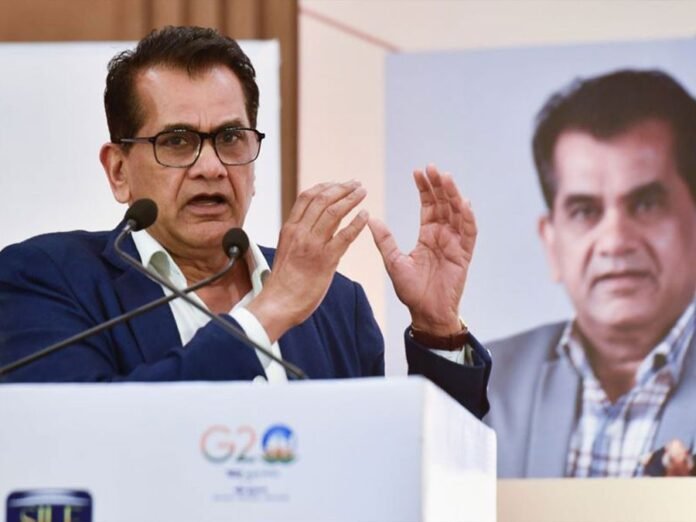Former NITI Aayog CEO Amitabh Kant believes U.S. President Donald Trump’s new H-1B visa rules could supercharge India’s innovation scene. He argues that the hefty $100,000 fee for each H-1B visa application will slow down the flow of global talent to the U.S. and send more skilled workers straight to booming Indian tech hubs like Bangalore, Hyderabad, Pune, and Gurgaon.
Kant shared his thoughts in a post on X right after Trump signed the proclamation on September 19. The policy kicks in on September 21 and targets what the administration sees as abuse in the H-1B program, especially by IT outsourcing companies that hire foreign workers at lower wages and push out American jobs.
“This $100,000 H-1B fee will choke U.S. innovation and turbocharge India,” Kant wrote. “By slamming the door on global talent, America pushes the next wave of labs, patents, innovation, and startups to Bangalore and Hyderabad, Pune and Gurgaon. India’s finest doctors, engineers, scientists, and innovators now have a chance to fuel our growth and push toward Viksit Bharat. America’s loss will be India’s gain.”
Kant isn’t alone in seeing an upside for India. Kunal Bahl, former Snapdeal CEO and entrepreneur, predicts a wave of talented professionals heading back home. “Because of these new H-1B rules, a tremendous number of skilled folks are going to return to India,” Bahl posted on X. “It might be tough at first to relocate, but the opportunities here are huge. Talent density in India is definitely rising.”
The changes could shake up the “tech arbitrage” model, where Indian engineers work onsite in the U.S. for lower costs. Instead, experts expect a surge in Global Capability Centres (GCCs) in India, where companies set up advanced operations locally.
Trump’s proclamation claims the H-1B program has strayed from its goal of attracting top global talent. The administration points to low-wage entry-level hires that hurt U.S. graduates and raises national security red flags, citing probes into visa fraud and money laundering at firms heavy on H-1B workers.
Now, employers must prove they’ve paid the fee when filing petitions. The U.S. Departments of State and Homeland Security will enforce it, with a few exemptions for cases vital to national interests. For India, though, this shift in U.S. immigration policy looks like a big win for homegrown tech and innovation.
Stay informed on all the latest news, real-time breaking news updates, and follow all the important headlines in world News on Latest NewsX. Follow us on social media Facebook, Twitter(X), Gettr and subscribe our Youtube Channel.



